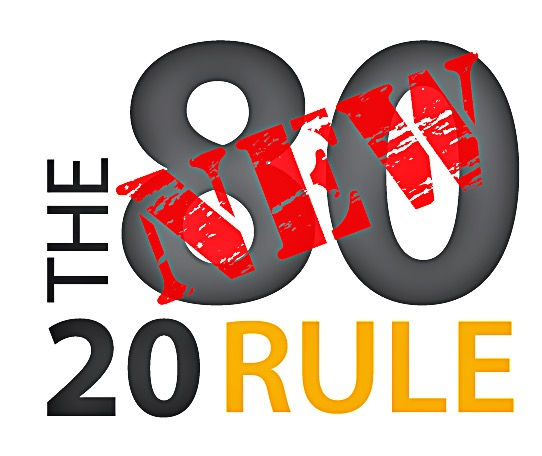The NEW 80/20 Rule
- aeklane
- Aug 11, 2015
- 4 min read

Reason. Season. Lifetime. We all know that concept. It’s the idea that some people are meant to be in our lives short term and others are meant to teach us a lesson; Few are actually going to hang on for dear life for the rest of our lives. That is how it should be. Adele says: Sometimes it lasts in love, but sometimes it hurts instead.”
The reality is that some relationships are “growing points” and others are “grounding.” To be clear: Growing Points are relationships that satisfy an immediate need or necessary life lesson. The benefits are temporary, even if the effects are long lasting. Good sex. Self-esteem boost (especially after a bad relationship or string of bad relationships). Increased social status. Healing. Career advancement. Economic advancement. Or just someone to fill that “In the Meantime” space. The things that create the bonds in growing points do not require that person specifically.
It’s that relationship that comes along to help you remember there are people in the world still capable of loving; the relationship that provides support for you when you move to a new city or into a new career; the relationship that moves you through a tough transition phase in your life (death or divorce). It satisfies a temporary need and when we look back there is often a gut feeling that we chose to ignore. Something inside of us that confirmed what we didn’t want to know. We are grateful, thankful, for having that person and may even feel guilty when we grow beyond them. May find it hard to face when it’s over or when we are ready to move forward…so we stay… longer than it benefits us. Good intentions—poor recognition of reality.
Grounding relationships are mutually agreed upon and mutually beneficial for an infinite period of time. Hear that: Mutually beneficial AND mutually agreed upon for an INFINITE period of time. Commitment to continuous growth becomes the objective and is visible to both parties. It is the ability to align life goals and plan a future on purpose. They are not a means of convenience. It is not something that you stumble into because you so happen to spend a lot of time together. It is the difference between wanting someone in your life and someone being integral to who you hope to be in the future.
Grounding relationships are sources of life. Like water or oxygen, we need them to be. They not only complement our intrinsic self, but call us to be better, greater, more authentic and with ease. They may not be easy, but they are necessary. We hold on to them because we know they are good for us—even when we aren’t ready. See, we mess up those relationships that ground us all the time. We let our pride and ego prevent us from seeing the need and stay caught up in our wants. We want pretty and shiny, but we need growth potential and peace. We need security, but we want variety. We need love, but we want tolerance.
So how do you know which one you’ve got? How do you tell the difference? The simple answer: you can’t. What you can do is pay attention and asses your relationship needs and benefits as often as you feel it necessary. The 80/20 rule suggests that you should not leave a relationship where 80% of your wants are being met simply because you recognize the 20% you are missing. That works sometimes, but what do you do when the 20% you are missing is comprised of things you need?
You reconsider.
It’s the law of negotiables vs. non-negotiables (that’s another post). You must prioritize your needs. In short, everyone has needs that cannot be compromised no matter how wonderful the relationship. You have to know what those needs are for you. It won’t matter if 80% of your wants are being met if those top priorities needs are not on the list. That is the difference between a growth point relationship and a grounding one. If communication, openness and sex are non-negotiable, but you also need honesty, transparency and dependability—you will never be satisfied if only the latter are present in your relationship. No amount of transparency will make up for lackluster sex. Period. This is not about just making a list, it is about rank-ordering your list. What matters in order of most to least. The top 80% vs the other 20%. That is for you to determine.
Grounding relationships will not require you to settle. You may not have 100% of your wants, but you should have at least 80% of your needs. And what you do have will leave you satisfied. Identify your needs. Prioritize them. Then examine your relationship. If there is a mutual commitment to work towards the future and it includes growing in those challenged areas—you may be in a grounding relationship. If not, it may be time to acknowledge the growth point and realize that you are ready for the next level.
SheAdande.













Comments